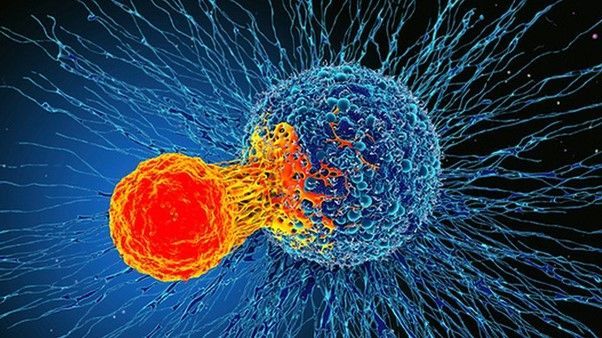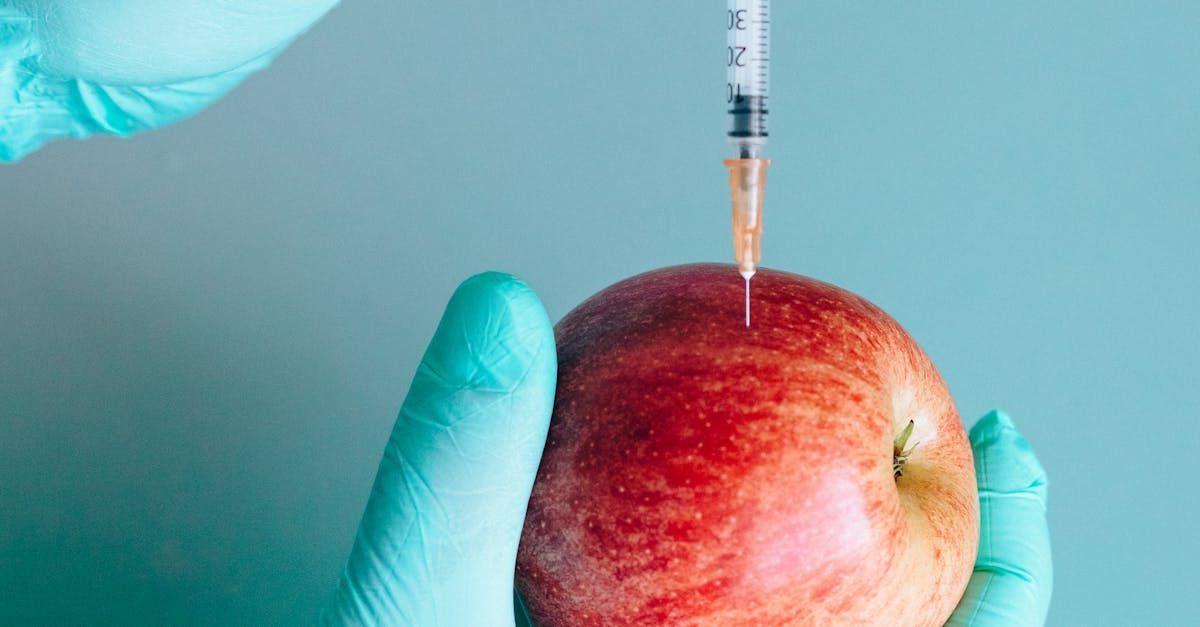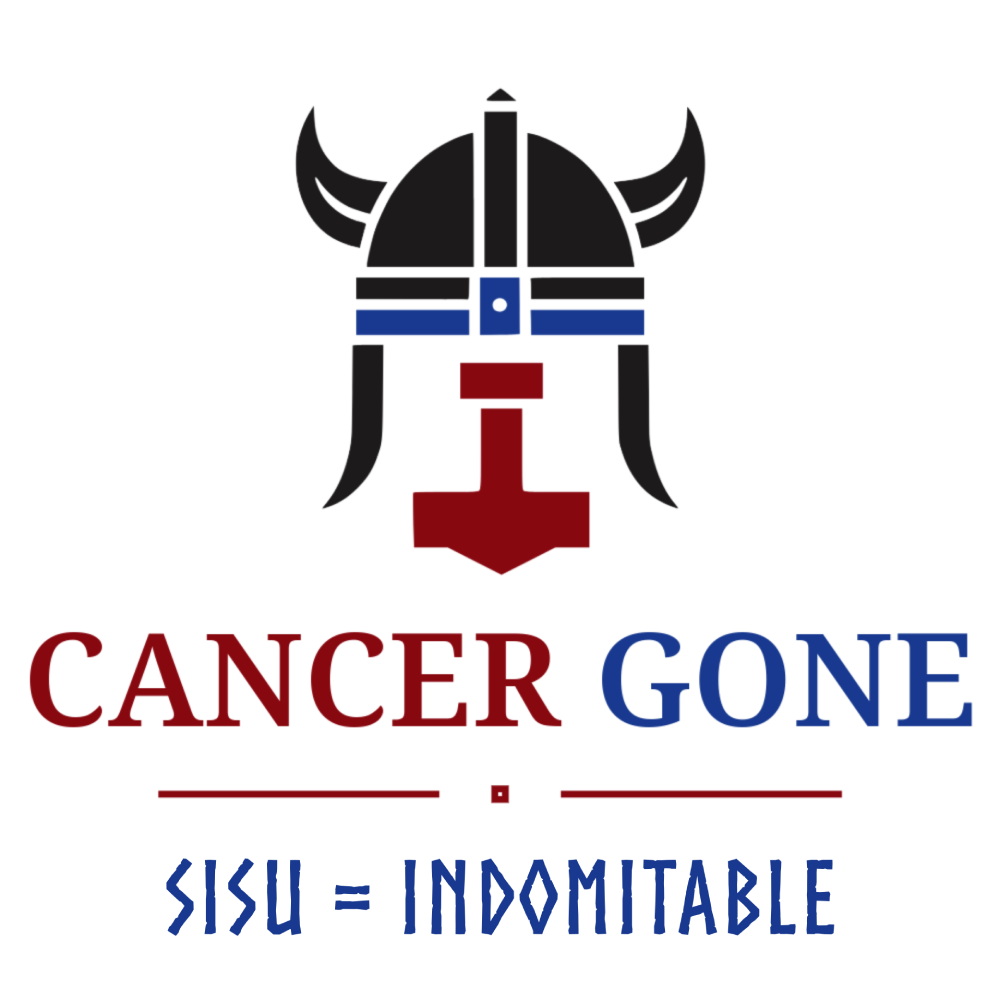IT’S WAR
You almost certainly know of someone with cancer or someone who died from cancer. Possibly, you have it yourself.
This is not surprising as 1 in 2 people will develop some form of cancer during their lifetime. That’s the same odds as the flip of a coin.
So, if (as the old joke goes) Google says your symptoms indicate cancer, it is as likely as not to be correct.
In fact, all healthy people constantly have cells that go “rogue” and mutate.

Normally, if these cells become cancerous, they are attacked and killed by the body’s dedicated soldiers, the immune cells.

T-cells attack cancer cells.
The important takeaway from this is that a healthy immune system kills cancer.
If for any reason this does not happen, the cancer cells continue to multiply and invade nearby tissues.[1] Link footnotes= read more]Cancer sometimes begins in one part of the body before spreading to other areas. This process is known as metastasis. It’s a full blown civil war.
METASTASIS
Metastasis involves a complex series of steps in which cancer cells leave the original tumor site and migrate to other parts of the body via the bloodstream…
This process is known (respectively) as lymphatic or hematogenous spread. After the tumor cells come to rest at another site, they re-penetrate the vessel or walls and continue to multiply, eventually forming another clinically detectable tumor…This new tumor is known as a metastatic (or secondary) tumor. Metastasis is one of the hallmarks of cancer, distinguishing it from benign tumors.
In overall stage grouping, metastasis places a cancer in Stage IV. The possibilities of curative treatment are greatly reduced, or often entirely removed when a cancer has metastasized.
THE NUMBERS
Cancer is the second leading cause of death in the United States and around the world causes nearly 10 million deaths per annum. This amounts to about 1 OUT OF EVERY 6 DEATHS. That is literally the same odds as choosing the chamber with the bullet in it in Russian Roulette.
Young people too
Doctors across the world are sounding the alarm over a surging epidemic of young people being diagnosed with cancers more commonly associated with the elderly. Between 1990 and 2019, cases of cancer in young people across the globe have increased by 79 percent and deaths have risen 28 percent.
In the UK, the 4 most common types of cancer are:
- Breast cancer
- Lung cancer
- Prostate cancer
- Bowel cancer
There are more than 200 different types of cancer, and each is diagnosed and treated in a particular way. You can find links on this page to information about other types of cancer.
DEALING WITH THE DREADFUL DIAGNOSIS
THE GOOD NEWS
An ever increasing number of people manage to conquer cancer: It does not have to be a death sentence. My wife, Lily, has had no recurrence of her stage 3 colon cancer in the 21 years since it was surgically removed.
The earlier cancer is detected and diagnosed, the better the chance of treating it successfully. But even if you are told your cancer has progressed to STAGE lV, there is hope.
CURE
Whether a person’s cancer can be cured depends on the TYPE AND STAGE of the cancer, the type of treatment they can get, and other factors. Some cancers are more likely to be cured than others. But each cancer needs to be treated differently. There isn’t one cure for cancer.
SURVIVAL RATE (Blog article coming soon)
CONVENTIONAL TREATMENT OPTIONS include:
CHEMOTHERAPY
The use of cytotoxic drugs to stop the growth of cancer cells, either by killing the cells or by stopping them from dividing. Chemotherapy may be given by mouth, injection, or infusion, or on the skin, depending on the type and stage of the cancer being treated. It may be given alone or with other treatments, such as surgery, radiation therapy, or biologic therapy.
RADIATION THERAPY
Radiation Therapy is the use of high-energy radiation from X-rays, gamma rays, neutrons, protons, and other sources to kill cancer cells and shrink tumours. Radiation may come from a machine outside the body (external-beam radiation therapy), or it may come from radioactive material placed in the body near cancer cells (internal radiation therapy or brachytherapy).
Medications, surgery or a combination of all these approaches. However, these are expensive, can come with difficult side effects and there is strong debate as to the effectiveness of CHEMOTHERAPY. The inability of traditional cancer therapy, such as chemotherapy and radiation, to distinguish cancer cells from normal cells is a significant drawback and leads to toxicities for patients undergoing treatment.
MODERN ADVANCEMENTS include personalized vaccines, cell therapy, gene editing, immune checkpoint inhibitors, intravenous dostarlimab and microbiome treatments. Researchers have even discovered a pharmaceutical compound that fights leukemia. Increasingly, cancer sufferers are seeking natural, alternative treatments.
SISU: HAVING AN INDOMITABLE SPIRIT(Blog article coming soon)
POWER OF THE MIND(Blog article coming soon)
POWER OF PRAYER(Blog article coming soon)
LAUGH IT OFF(Blog article coming soon)
EARLY DETECTION & TESTING LINK
- Cancer Association of South Africa (CANSA) Fact Sheet and Position Statement On the Risks of Alternative Cancer Therapies
- Four DNA viruses that are capable of causing the development of human cancers
- Small cancer drug trial sees tumors disappear in 100 percent of patients
- Researchers discover compound that fights leukemia, lymphoma
Footnotes and references:
[1] https://www.webmd.com/cancer/how-many-cancer-deaths-per-year
[2] https://en.wikipedia.org/wiki/Metastasis
[3] https://www.bing.com/images/search?q=do+healthy+people+have++cancer+cells&id=4EC2459D27C246BA26A89F0E1E8B3797D78DFAD9; https://www.iarc.who.int/
[4] https://www.dailymail.co.uk/health/article-13197079/cancer-epidemic-young-people-america-uk-india-south-africa.html#:~:text=Doctors%20across%20the%20world%20are,deaths%20have%20risen%2028%20percent.
[5] https://www.nhs.uk/conditions/cancer/#:~:text=1%20in%202%20people%20will,lung%20cancer
[6] https://www.nhs.uk/conditions/cancer/#:~:text=1%20in%202%20people%20will,lung%20cancer
https://www.who.int/news-room/fact-sheets/detail/cancer
SHARE THIS PAGE




